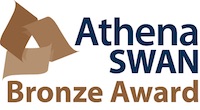University of Salford engineers Masters in Palestine

University of Salford engineers Masters in Palestine
Monday 12 October 2015
The University of Salford is leading a Euro-Palestinian initiative to create the nation’s first higher degree in Electrical Engineering.
The MSc, which starts in January 2016, will be delivered online, via e-learning and face-to-face at Birzeit University, Palestine Polytechnic University and the Palestine Technical University in Tulkarem, who jointly award the qualification.
The programme, which draws on Salford's strong heritage in engineering and telecoms, has been co-created with the Palestine Information Technology Association and Jerusalem District Electricity Company.
Professor Haifa Takriri-Rizk MBE director of the project at the School of Computing, Science and Engineering, who supported the creation of the degree, said: “It’s great to be leading the team who are developing the first Palestinian MSc in Electrical Engineering.
Telecoms and Energy
Rina Lakhman, project manager, said: “There is so much enthusiasm for the programme from ministries, industry, universities and students. It truly reflects the difference the course will make for the advancement of Palestinian careers in the Telecommunications and Energy sectors.”
EU professors will deliver certain modules to the MSc students, while Palestinian professors will visit EU institutions to explore teaching and research methods.
The multinational project includes the ESTIA Institute of Technology, France, the Technical University of Cluj Napoca, Romania, The University of Ruse, Bulgaria and hopes to promote the reform and modernisation of higher education in Palestine.
In the longer term, scheme also hopes to increase the capacity of higher education institutions in the partner countries and the EU, and to assist them in opening themselves up to society at large and the wider world.
EU funding
Professor Takruri-Rizk (pictured above with the Palestinian Prime Minister Rami Hamdallah), said: "I am very grateful to the EU commission and the TEMPUS fund for co funding this project."









